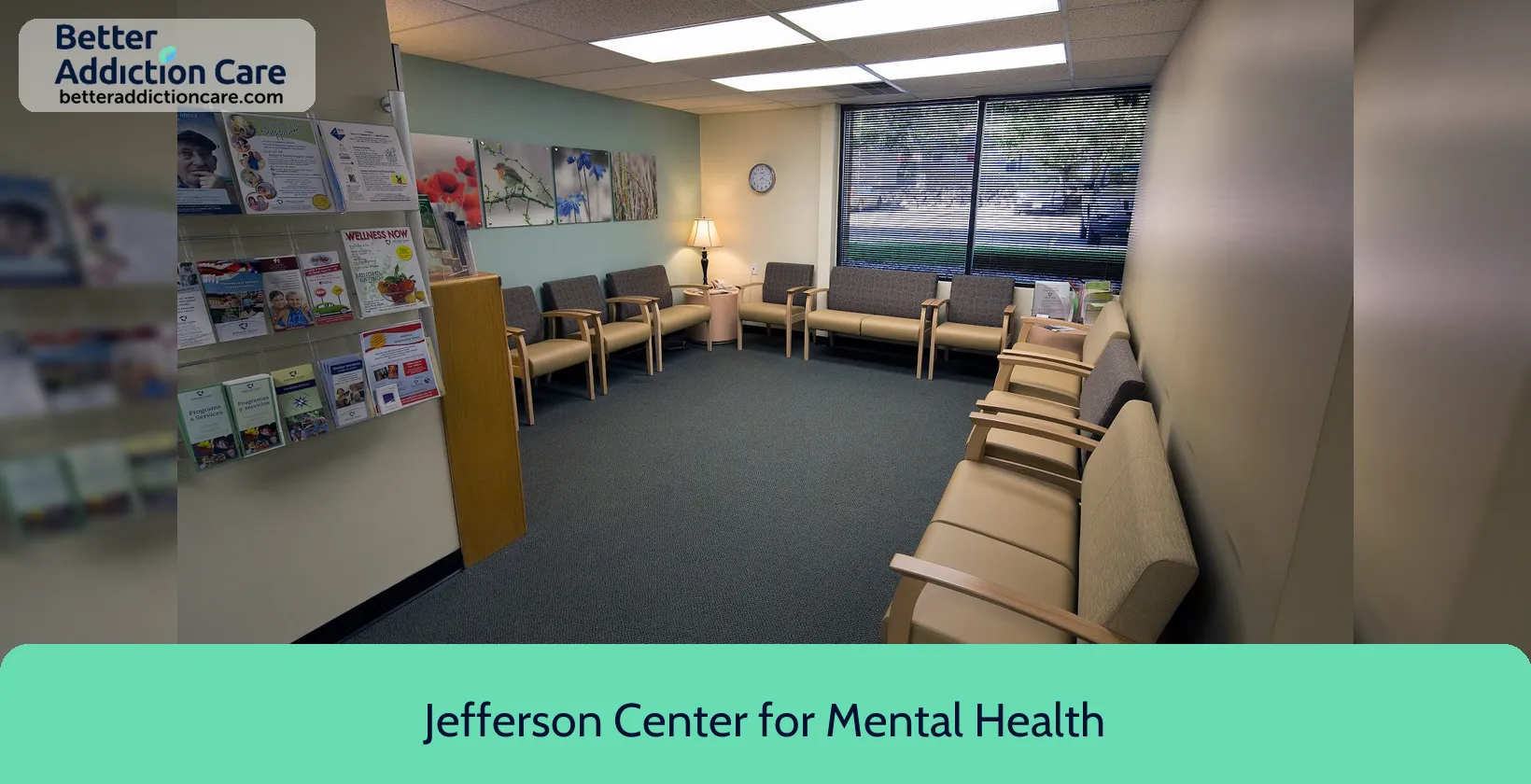University of Colorado Denver - ARTS - Westside Center for Change

Overview
University of Colorado Denver - ARTS - Westside Center for Change is a substance abuse treatment center for people seeking treatment near Jefferson County. As part of their treatment modalities for recovery, University of Colorado Denver - ARTS - Westside Center for Change provides cognitive behavioral therapy, telemedicine/telehealth therapy, and substance use disorder counseling during treatment. University of Colorado Denver - ARTS - Westside Center for Change is located in Arvada, Colorado, accepting cash or self-payment for treatment.
University of Colorado Denver - ARTS - Westside Center for Change at a Glance
Payment Options
- Cash or self-payment
- Medicaid
- Medicare
- Private health insurance
- Federal, or any government funding for substance use treatment programs
Assessments
- Screening for tobacco use
- Comprehensive substance use assessment
- Interim services for clients
- Outreach to persons in the community
- Screening for substance use
Age Groups
- Young adults
- Adults
- Seniors
Ancillary Services
- Case management service
- Transportation assistance
Highlights About University of Colorado Denver - ARTS - Westside Center for Change
7.40/10
With an overall rating of 7.40/10, this facility has following balanced range of services. Alcohol Rehabilitation: 8.00/10, Drug Rehab and Detox: 8.15/10, Insurance and Payments: 6.00/10, Treatment Options: 7.46/10.-
Drug Rehab and Detox 8.15
-
Alcohol Rehabilitation 8.00
-
Treatment Options 7.46
-
Insurance and Payments 6.00
Accreditations
Commission on Accreditation of Rehabilitation Facilities (CARF):

CARF accreditation is a prestigious recognition granted to rehabilitation and human service organizations. It signifies that an organization meets high-quality standards, having undergone a rigorous evaluation process. CARF accreditation boosts an organization's credibility and ensures top-notch care for individuals with disabilities, injuries, or healthcare needs.
SAMHSA certification for opioid treatment program (OTP):
SAMHSA's Opioid Treatment Programs (OTP) accreditation is a prestigious recognition that signifies a program's compliance with stringent standards and guidelines established by the Substance Abuse and Mental Health Services Administration (SAMHSA). This accreditation demonstrates an OTP's commitment to providing high-quality, evidence-based care for individuals struggling with opioid use disorder (OUD). It serves as a trusted symbol of accountability and excellence, assuring patients, families, and communities that the OTP offers safe, effective, and comprehensive treatment options for OUD.
Treatment At University of Colorado Denver - ARTS - Westside Center for Change
Treatment Conditions
- Alcoholism
- Substance use treatment
Care Levels
- Outpatient
- Outpatient methadone/buprenorphine or naltrexone treatment
- Intensive outpatient treatment
- Regular outpatient treatment
- Aftercare
Treatment Modalities
- Cognitive behavioral therapy
- Telemedicine/telehealth therapy
- Substance use disorder counseling
- Trauma-related counseling
- Smoking/vaping/tobacco cessation counseling
Ancillary Services
Additional Services
- Pharmacotherapies administered during treatment
- Mentoring/peer support
- Breathalyzer or blood alcohol testing
Special Programs
- Criminal justice (other than DUI/DWI)/Forensic clients
- Pregnant/postpartum women
- Clients who have experienced trauma
Get Help Now
Common Questions About University of Colorado Denver - ARTS - Westside Center for Change
Contact Information
Other Facilities in Arvada

6.92

7.63
DISCLAIMER: The facility name, logo and brand are the property and registered trademarks of Jefferson Center for Mental Health - North Wadsworth Office, and are being used for identification and informational purposes only. Use of these names, logos and brands shall not imply endorsement. BetterAddictionCare.com is not affiliated with or sponsored by Jefferson Center for Mental Health - North Wadsworth Office.
